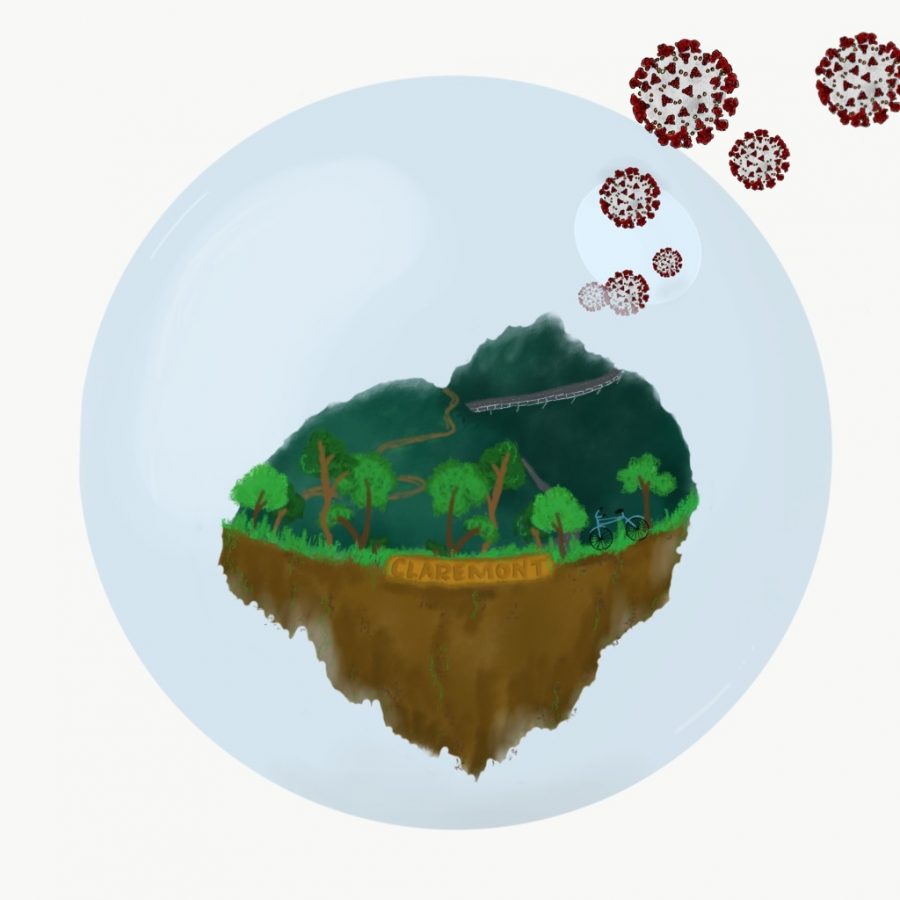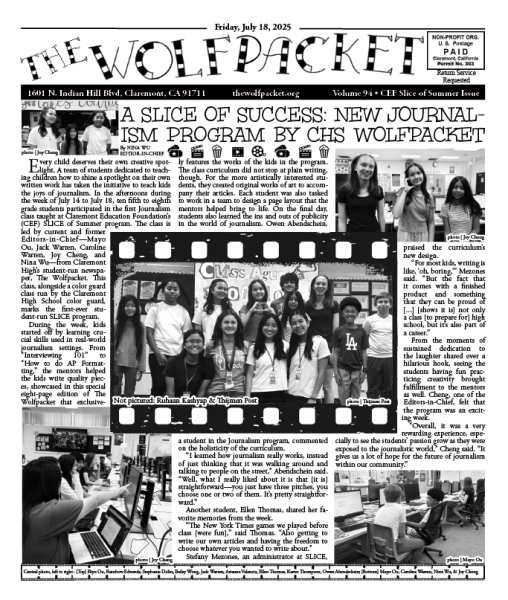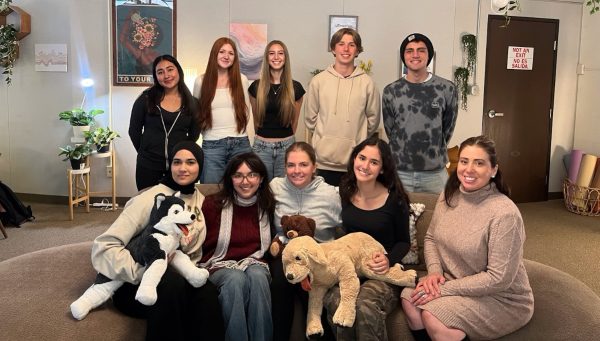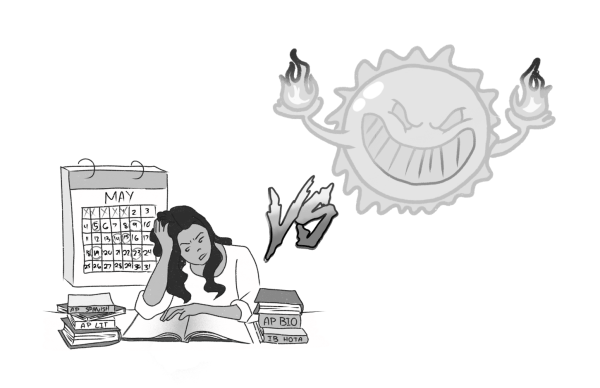COVID-19 catch up: an update on rising cases, restrictions, and vaccines
As the holiday season begins, Coronavirus cases have been rapidly on the rise, reaching some of the highest numbers yet. On Dec. 1, Los Angeles County gained over 7,000 new COVID cases, and had just over 46 deaths. The spike has resulted in new restrictions for the area. Prior to the restrictions, the village streets have been alive and bustling with people. Local restaurants have created outdoor seating areas that spill over into the streets so customers can safely enjoy their favorite meals, and many shops have remained open for mask wearing customers. With the new restrictions put in place by the county, a lot of this could change. The restrictions have tightened for local stores and businesses, creating a curfew; so restaurants with outdoor seating or in person dining cannot open before 6 a.m, or close anytime after 10 p.m. Furthermore, restaurants with outdoor dining available have had to limit themselves to 50% of what their maximum outdoor seating capacity would usually be, and personal care offices are only permitted to allow 25% of their maximum capacity of people inside, in order to meet social distancing guidelines. Outdoor gatherings of over 15 people, even those on private property, are prohibited. High risk businesses like theme parks, nightclubs, museums, and concert halls are not currently allowed to open, and malls and or shopping centers are required to close by 10 p.m, unless they remain open for curbside pick up only.
As part of LA county, these new guidelines affect the city of Claremont, and Claremont High School students. As of Nov.30 there have been 700 COVID cases in Claremont and ten deaths. With such a large number of cases so close to home, COVID has leapt from the news pages and into the personal lives of many residents, making it all the more terrifying.
“When my cousins got COVID it was eye opening to how serious all of it really is,” CHS freshman Ella Holtan said. “Knowing that loved ones and others in my community have gotten it changed my view completely. Before, it was something that you just saw on the news in other areas but it gets very real when someone close to you has it.”
Over the summer, CHS sophomore Roman Savage was one of millions who tested positive for the virus. After his experience, it is frustrating to see people downplay the harm of the virus.
“It makes me upset to see people not taking the virus seriously,” Savage said. “They’re being selfish, and not considering the lives of others who the virus has been hurting.”
For people like Holtan and Savage, what once seemed like a distant issue is now an immediate part of their own life, and as cases continue to rise this will become the reality for more and more Claremont residents. Claremont has not escaped the recent surge, and has seen an increase in cases since late November. 170 cases have appeared in just the last two weeks.
Ideally over the next few months the amount cases will decrease as new COVID-19 vaccines become accessible. On November 18, Pfizer and BioNTech released their discoveries from the Phase Three study of their COVID-19 vaccine candidate. When the clinical trial began in late July, half of the participants received the model vaccine while the other half were given a placebo of salt water. After analyzing the data from the study’s 43,000 participants, the vaccine has proven to be 95% effective when taken in two separate doses, which is well above the FDA’s required 50% efficiency rate. Additionally, the participants experienced only mild and temporary after-effects such as fatigue and headache. Age, sex, ethnicity, and race appear to have no affect on the vacinne’s efficiency. On December 11, Pfizer and BioNTech received Emergency Use Authorization from the FDA, and are aiming to produce 50 million doses by the end of 2020 and 1.3 billion in 2020. Other biotechnology companies such as Moderna and AstraZeneca have developed vaccine candidates with similar test results, but only Moderna has requested FDA approval.
Though Savage was asymptomatic, his experience with COVID-19 shaped his perspective on how easily the virus spreads. He believes it is crucial for people to receive the vaccination when it becomes widely accessible, but is doubtful it will be the end of the pandemic.
“We need to trust our medical officials and take the vaccine,” Savage said. “But the vaccine will not solve all problems. Masks and social distancing will still be needed to protect those around us until the CDC gives us the okay to end protective measures.”
In early December, Governor Gavin Newsom announced that California will be receiving 327,000 doses of the Pfizer-manufactured vaccine and 672,000 doses of the Moderna vaccine over the course of the next few weeks. California health officials and the Centers for Disease Control and Prevention are currently finalizing a plan for mass distribution, which will likely be separated into three phases, giving health care workers and high-risk individuals priority. The COVID-19 vaccine is a crucial step towards returning to pre-pandemic life. Dr. Anthony Fauci predicts the United States could return to a “relatively normal” state towards the middle of 2021, if an overwhelming majority choose to take the vaccine, which a recent survey shows that 58% of American Adults are willing to do. The vaccine could be crucial in helping resume in-person schooling, as it may assist in declining the number of cases down to what is deemed safe to return on campus. Even with a nation-wide vaccination, safety measures such as mask wearing and social distancing will still be needed to protect public health. It will take an indefinite amount of time to assuredly return back to “normal”. In the meantime, keep following the COVID restrictions and guidelines to protect yourself and others.
Hello there! Our goal is to provide relavent, engaging journalism for readers of all ages. Your donation will support the student journalists of the Wolfpacket at Claremont High School, and will allow us to purchase equipment, print our monthly issues, and enter in journalism competitions. We appreciate your consideration!
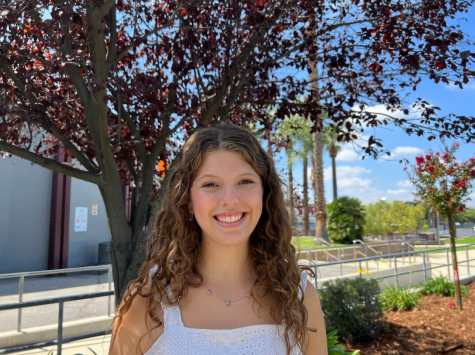
Melina Tisopulos is a senior and the Editor-in-Chief of The Wolfpacket. Melina loves to write and intends on studying journalism or English in college....
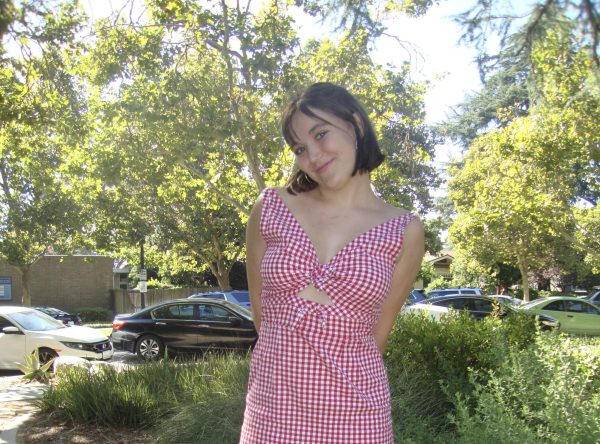
Izzy Thomas is a senior at CHS and one of the three Editors-in-Chief for The Wolfpacket. Her hobbies include taking photos, cooking, playing guitar, and...



